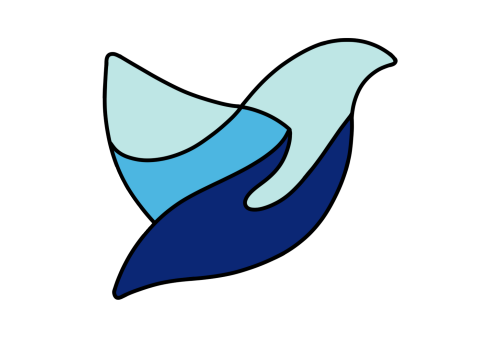Environmental Crimes: Shell within Nigeria
Large companies active in the extraction of raw materials have long been known for the damage they cause to the environment. This damage then often causes problems for local communities, for example, in providing for their livelihoods. Because it is usually ‘the small’ man versus the large company, it is difficult to sue the company both financially and legally. However, a recent case showed a breakthrough in this: the Nigerian farmers against the oil giant Shell.
Before going into the specific case, it is important to outline a historical context of Shell’s activities in Nigeria.T he Niger Delta in Nigeria is rich in oil. In the 1950s, Shell came to the country with a promise to bring about national economic progress through the abundance of ‘black gold’. The population was not informed of possible harms, nor was an investigation into potential environmental hazards carried out by the company. Part of this area, the size of the Netherlands and Belgium together, has now become a lunar landscape due to the many exploits. Huge amounts of agricultural land and rivers that served as primary sustenance areas for the community have also been severely damaged by the many spills. If these spills are caused by company negligence, the company is required to pay compensation to the communities. If this is due to local sabotage, however, the company does not have that obligation any longer.
A recent study by the Dutch media company Zembla shows how Shell bribes local citizens on a structural basis and incites them to deliberately cause leaks, in order to avoid payment of compensations in this way. Shell claims 95% of the oil spills are caused by sabotage. However, Zembla believes that Shell’s pipelines are often old, they are under internal pressure and that corrosion can also lead to leaks, which would all point to negligence by the company itself. A large part of the pipeline network is also above ground – something that is contrary to international agreements – which makes it easier to cause leaks. It should also be noted that not all leaks have been set up by Shell itself; there is a lot of poverty in Nigeria so that people do indeed tap oil from the pipes and cause leaks on their own initiative. But again, these are mostly the people who have been deprived of their livelihoods due to the presence of the oil company. This together shows that there is a high degree of environmental, and also human injustice.
Since the end of the Cold War, natural resources are being plundered by international corporations. This is also known as ‘pillage’, a concept which describes an offence under the laws of war. The current governance structure with its ‘soft law’ instruments can contribute a little to the protection of human rights or environment by corporations. However, the worst perpetrators are not compelled to take part and affiliated corporations to the UN Global Compact initiative are not meeting their reporting obligations. Without international law on environmental crimes, states and corporations are allowed to harm the environment and therefore local communities with impunity.
This injustice has drawn attention towards the development of a green perspective in criminology. More and more lawyers, NGOs and other social movements are taking action in support of ‘Climate Justice’. The high impunity rate of corporate crimes against the environment has led to the codification of ecocide, by which nature is understood as an equal partner with humans in building societies. Now, international lawyers are drafting plans to define the crime of ecocide legally, which is attracting support from European countries and island nations. The initiative is taken up by the International Criminal Court, that previously promised to prioritise crimes that result in the ‘destruction of the environment’, ‘exploitation of natural resources’ and the ‘illegal dispossession’ of land.
So, heading back to the recent case. Thirteen years ago, four Nigerian farmers, with the help of the Friends of the Earth Netherlands, entered a legal battle with Shell. These farmers have lost their livelihoods as fishermen and farmers because of the oil pollution. They have fallen into poverty because of the lack of income. On the first attempt, a lower court ruled that only one of the farmers was entitled to compensation and that only the local subsidiary Shell Nigeria was liable. During the trials, Shell again used the argument that the spills were caused by local crime. However, Friends of the Earth Netherlands has continued to assist the four farmers and has persistently continued to make sure Shell was ruled against. Now, years later, due to the insufficient evidence for local sabotage which might have caused spills, the Dutch Supreme Court has ruled that the parent company Shell is liable and that compensation must be paid to all four farmers. This points to a breakthrough that could lead to the same kind of rightful ruling in future environmental cases.
This bit of justice offers hope. The cautious transition within international law also shows that there are changing views on the responsibilities and liabilities of large oil and / or gas companies and how the environment is slowly starting to become more important within the law.
For more information and ways to help, follow this link to our resource bank:



